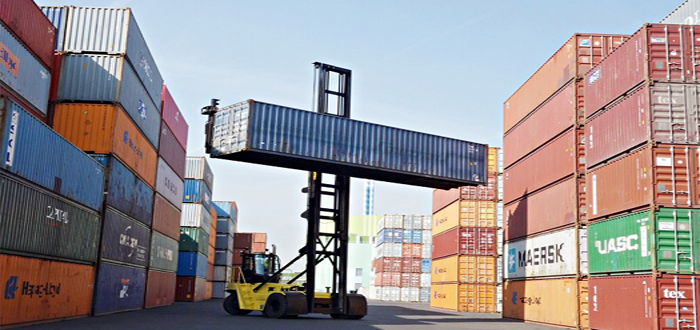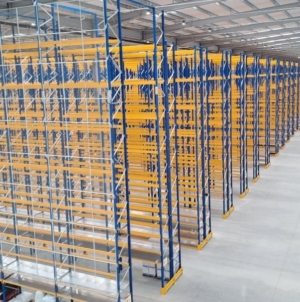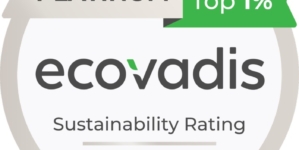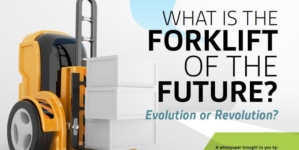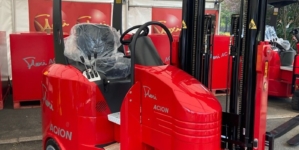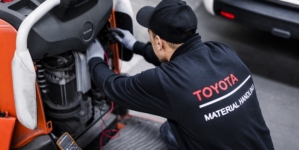-
BLACKOUT TECHNOLOGIES TARGETS TELEMATICS-INTEGRATED MOBILE DEVICE BLOCKING TO COMBAT SMARTPHONE DISTRACTION - 2 days ago
-
Sparck Technologies awarded Royal designation - March 27, 2025
-
OpenADR Alliance announces first OpenADR 3.0 certified products with EVoke Systems, E.ON Energy and Universal Devices - March 25, 2025
-
Growing fulfilment and contract packer appoints new Managing Director - March 25, 2025
-
When is it time to invest in a WMS? Understanding the key trigger points - March 25, 2025
-
eCapital helps Vantage Recruitment on its journey to financial success - March 24, 2025
-
Hugo Beck Celebrates 70 Years of Packaging Innovation with Open House Events - March 20, 2025
-
PROLOG FULFILMENT SUPPORTS LUNA DAILY’S COMMITMENT TO BETTER BODY CARE FOR ALL WOMEN - March 19, 2025
-
Motion Ventures launches largest-ever maritime tech fund at $100M to meet the industry’s new pace of adoption - March 18, 2025
-
ITD GLOBAL APPOINTS GROUP CHIEF REVENUE OFFICER - March 17, 2025
Carbon-neutral container terminal trials Hyster empty container handler .
Intermodal transport and logistics specialist Frankenbach operates the only carbon-neutral container terminal on the Rhine, based in the inland Port of Mainz. The latest generation of Hyster® empty container handling trucks, which use significantly less fuel than their predecessors, have been introduced to the port.
Around 1500 20 – 40ft containers are moved daily in the Port of Mainz. Sea freight containers arrive on the Rhine from Rotterdam or Antwerp and are then loaded directly onto train or truck for onward transportation. The new 10,500 TEU capacity container terminal was opened in May 2011 and today the company handles 455,000 TEU annually.
Hyster excels in tough conditions
Since the late 1970s, Frankenbach has used empty container handlers from various manufacturers for the handling, storage and repair of containers, and need to be able to stack containers seven high.
Since August 2014 the logistics company has been testing the latest generation of Hyster® Container Handlers with Cummins QSB 6.7 Stage IV engines and ZF 5-speed WG211.
“The general consensus here in the terminal is that the Hyster® trucks are very good,” says CEO Ernst Frankenbach, who is convinced by the new Hyster® empty container handlers. “Fuel consumption can be reduced by up to 20 percent compared to a Stage IIIA engine. Even compared to a competitive Stage IV engine, the Hyster® truck could reduce costs by up to 10 percent.”
Operating costs significantly reduced
Before making the decision, Ernst visited the Hyster® test track in Weeze, Germany to see the new models.
“I was particularly impressed by the load-sensing hydraulics which enable a high lift speed at a low engine speed and the 5-speed ZF transmission,” says Ernst. “I also liked that the usual idling speed is automatically lowered when the truck is inactive for more than five minutes.”
“Overall, the different features that Hyster has developed in the empty container handler can help us protect the environment while reducing our operating costs,” says Ernst.
The Stage IV empty container handler was developed through the close cooperation of Cummins, ZF and Danfoss with the Hyster® Big Trucks department in Nijmegen, the Netherlands.
“High reliability, low fuel consumption with reduced emissions and lower service costs are our contribution to help companies to lower their operating costs and to protect the environment,” says Norbert Brünell, Senior Product Strategy Manager Big Trucks EMEA at Hyster.
High stability and low noise
These advantages have not only won over CEO Ernst Frankenbach, but also the drivers who use the truck daily in the empty container depot.
“The new Hyster® H22XM-12EC persuaded me not only because it is a good truck to drive and manoeuvre, but also because it has excellent stability,” says driver Karl-Heinz Frankenbach, who has been using empty container handlers from different manufacturers at the Frankenbach container terminal for 27 years.
Karl-Heinz continues “The cab provides a lot of space and is very comfortable with low noise. When I come home at night, I can sit back and relax, without having the engine noise still in my head!”
Rhein-Saar-Mosel Container Express Train runs three times weekly
In the past, Frankenbach used trucks to transport containers to Saarland. However, at the end of 2014, the trial operation of the Rhein-Saar-Mosel-Express container train started. Today, the train connects the container terminal at the Port of Mainz with Homburg-Kirkel in Saarland and runs three times per week. Most of this cargo has been transferred from the big seaports in Rotterdam and Antwerp to Mainz. There the containers are loaded onto the train and transported to Saarland.
“Using the rail link is much faster and more ecological than transporting containers by water or by truck,” says Ernst. “Therefore, we are planning to increase the capacity on the line in the future, transporting both raw materials and finished products.”
Hyster® ReachStacker for container handling
Due to the good experience using the empty container handlers in Mainz, Frankenbach now also uses a new Hyster® ReachStacker for operations in the rail terminal in Saarland.
“Equipped with the latest technology and meeting the current Stage IV emissions standard, the Hyster® ReachStacker increases efficiency in our intermodal operations and is both environmentally friendly and economical,” concludes Ernst.



























